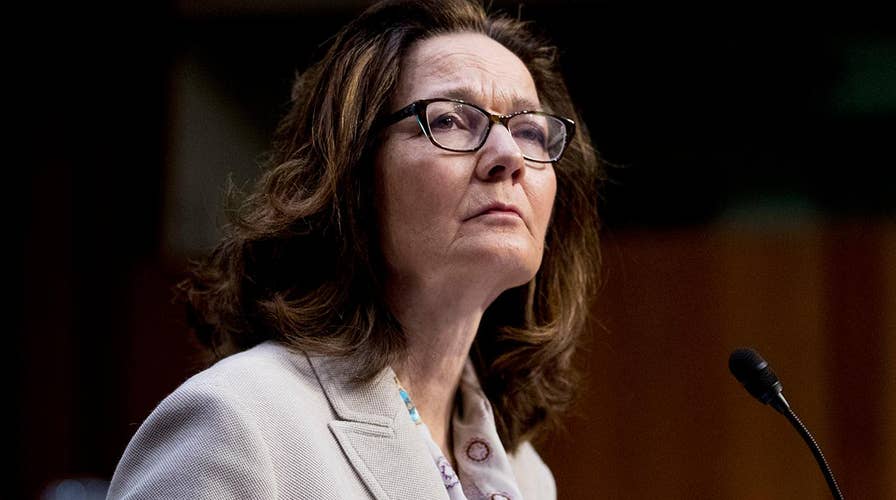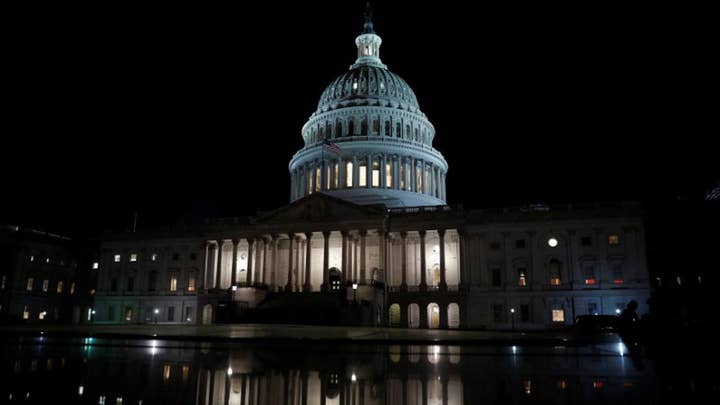Gina Haspel confirmed as CIA director
Senate confirms Gina Haspel as the first woman to lead the CIA.
Gina Haspel was confirmed Thursday as CIA director, becoming the first woman to lead the agency and overcoming initial Democratic opposition regarding her role in post-9/11 interrogation and detention practices.
The Senate voted 54-45 to confirm President Trump's nominee, with six Democrats supporting and two Republicans defecting. Haspel, whose nomination was endorsed by the Senate Intelligence Committee a day earlier, previously was deputy director and has spent her career with the agency.
Trump tweeted his congratulations after the vote.
Haspel earned emphatic support from GOP lawmakers as well as intelligence community members from both Democratic and Republican administrations.
"The safety and security of the American people depend on capable intelligence leadership. Gina Haspel is the right woman at the right time," Senate Majority Leader Mitch McConnell, R-Ky., said.
But her history as base chief at a black-site prison in Thailand in 2002, where techniques such as waterboarding were used on terror suspects, came under scrutiny during the confirmation process. Republican supporters accused Democrats of politicizing her nomination and initially trying to derail an otherwise highly qualified nominee.
At her confirmation hearing last week, Democrats grilled her on her views on what they deemed torture, as well as objecting to what they saw as the CIA’s selective declassification about information on her. She was also questioned at length about the 2005 destruction of more than 92 interrogation tapes -- a move she said she supported to ensure the safety of CIA agents.
Haspel refused to criticize her colleagues and superiors for their conduct during what she called a “tumultuous time,” but said the CIA under her watch would not resume such techniques. She also defended her own conduct.
“After 9/11 … I stepped up. I was not on the sidelines, I was on the frontlines in the Cold War and I was on the frontlines in the fight against Al Qaeda,” she said in response to a question from Sen. Ron Wyden, D-Ore.
Haspel’s confirmation had been in question after Sen. Rand Paul, R-Ky., later joined by Sen. Jeff Flake, R-Ariz., said he would not vote for her.
“While I thank Ms. Haspel for her long and dedicated service to the CIA, as a country we need to turn the page on the unfortunate chapter in the agency's history having to do with torture,” Flake said in a statement Wednesday.
Along with the absence of Sen. John McCain, R-Ariz., it meant that Haspel needed Democratic votes to assure her confirmation.
But in the days leading up to Thursday's vote, she picked up Democratic support, particularly from those in tough midterm re-election fights. Sen. Joe Donnelly, D-Ind., and Sen. Joe Manchin, D-W.Va., came out to back her last week, and others followed.
A key factor may have been a letter she wrote to Sen. Mark Warner, D-Va., vice chairman of the intelligence committee, on Tuesday, saying: “With the benefit of hindsight and my experience as a senior agency leader, the enhanced interrogation program is not one the CIA should have undertaken."
Warner subsequently said in a statement that he believes she “is someone who can and will stand up to the president if ordered to do something illegal or immoral -- like a return to torture.”
Haspel will replace now-Secretary of State Mike Pompeo.







